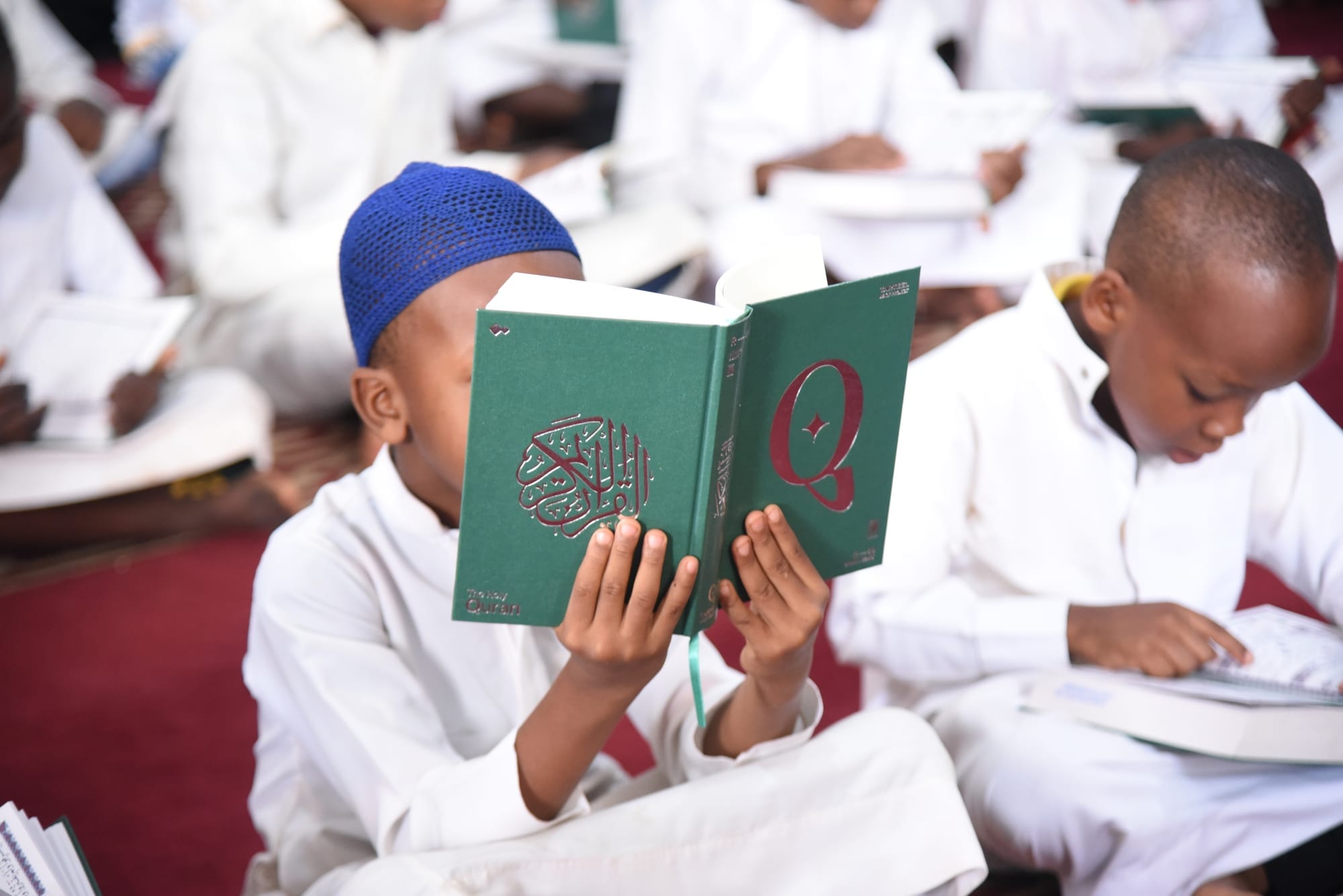Imagine this: You’re pacing back and forth, softly reciting a verse over and over again, and suddenly, it sticks. Or perhaps you’re sitting still for hours, trying to memorize, but the words keep slipping away. If you’ve ever noticed that your memory seems sharper when you're in motion, you’re not imagining it.
Science confirms what many students of knowledge, scholars, and even huffadh have practiced for centuries: movement enhances memory. The connection between physical activity and cognitive function is profound, and when applied to Quran memorization, it can completely transform the way we retain and recall information.
Whether you’re struggling to make your hifz stick or looking for ways to boost your memorization efficiency, understanding the movement-memory connection could be the missing piece in your journey.
Why Does Movement Enhance Memory?
Our brains and bodies are deeply interconnected, and research continues to uncover the cognitive benefits of movement. Here’s how it works:
Movement Increases Blood Flow to the Brain
Physical activity increases oxygen and nutrient delivery to the brain, which in turn enhances cognitive functions like focus, attention, and memory. When you move—whether walking, stretching, or even gesturing—you’re giving your brain the fuel it needs to form and strengthen new neural connections.
🔹 A study from the University of Illinois found that just 20 minutes of walking can improve memory recall and cognitive performance.
💡 What this means for hifz: Instead of sitting for long, mentally draining sessions, try pacing while reciting or incorporating light movement between review sessions.
The Brain Associates Memory with Context
Have you ever memorized something in a specific place and found it easier to recall when you're back in that same location? This is called context-dependent memory, and movement helps reinforce it.
When you memorize while walking or changing locations, your brain forms associations between movement and the verses you're reciting, making it easier to retrieve them later.
💡 What this means for hifz: If you're struggling to recall a verse, try recreating the movement or environment where you originally memorized it. It might just trigger the memory faster!
Movement Reduces Stress and Enhances Focus
One of the biggest enemies of memorization is stress. When we're anxious, our brains prioritize survival over deep learning. Movement—especially low-intensity activities like walking or stretching—reduces stress by releasing endorphins and lowering cortisol levels. This creates a mental state that’s more receptive to memorization.
🔹 A study published in the British Journal of Sports Medicine found that walking in nature improves cognitive function and reduces mental fatigue.
💡 What this means for hifz: If you feel frustrated or overwhelmed, take a short walk outside while reciting a few ayat. It can clear your mind and make it easier to absorb and retain information.
How to Use Movement to Boost Quran Memorization
Now that we understand the link between movement and memory, how can we apply this knowledge to Quran memorization? Here are some practical strategies:
1. The Walking Memorization Method
Instead of sitting still while memorizing, pace back and forth or take a slow walk. This technique is widely used by students of knowledge and huffadh around the world.
- Recite an ayah while walking a set distance.
- Stop, repeat the ayah, and continue walking.
- Add the next ayah and follow the same pattern.
💡 Tip: Walking outside, especially in a natural setting, can improve focus even more.
2. Use Hand Gestures and Body Movement
Adding deliberate hand gestures or small body movements while reciting can improve retention. This technique, called embodied cognition, reinforces learning by engaging multiple parts of the brain.
- Assign a specific gesture to each word, phrase, or meaning in the verse.
- Act out the meaning (e.g., pointing up for "fis-samaa'" to symbolize the sky).
- Use your hands to trace the shape of Arabic letters in the air.
💡 Tip: This works especially well for visual learners who benefit from linking physical actions to memorization.
3. Engage in Light Exercise Before Memorization
Engaging in mild physical activity before a hifdh session can prime your brain for learning. Simple activities like stretching, jogging in place, or even deep breathing can:
- Improve focus and alertness.
- Activate memory-forming regions in the brain.
- Reduce mental fatigue and stress.
🔹 A study from the University of British Columbia found that regular aerobic exercise boosts the size of the hippocampus, the part of the brain responsible for memory.
💡 Tip: Try 5-10 minutes of light movement before sitting down to memorize—like stretching or a short brisk walk.
4. Recite While Doing Daily Activities
One of the easiest ways to integrate movement into Quran memorization is to recite while performing simple, repetitive tasks:
- Doing chores: Recite while washing dishes, cooking, or folding laundry.
- Driving or commuting: Listen to an ayah, pause, and repeat it from memory.
- Standing in line or waiting: Review previously memorized verses instead of scrolling your phone.
💡 Tip: Keep a small notebook or Tarteel app handy to quickly check or correct mistakes as you go.
5. Practice the “Teach Back” Method with Movement
The Feynman Technique (a powerful memory tool) suggests that the best way to retain information is to teach it. Try explaining an ayah out loud while walking or acting out its meaning.
- Walk back and forth while summarizing the meaning of the verse.
- Pretend to “teach” an imaginary class about what you’ve memorized.
- Use simple, easy-to-understand explanations, reinforcing understanding + memorization.
💡 Tip: If you have kids, siblings, or friends, practice teaching them a verse while walking together.
Move More, Memorize Better
The connection between movement and memory is undeniable. From walking and pacing to using hand gestures and incorporating light exercise, physical activity can significantly enhance your ability to memorize and retain the Quran.
If you’ve been struggling with hifdh, try switching up your approach. Move, recite, engage your body—and watch how your memorization improves.
And remember: Allah rewards every step you take toward the Quran. So whether it’s a small walk with dhikr on your tongue or pacing as you recite, each movement brings you closer to the words of Allah.





